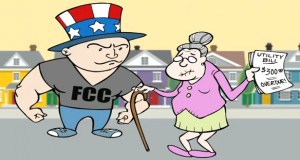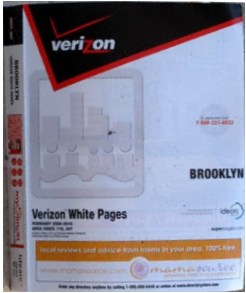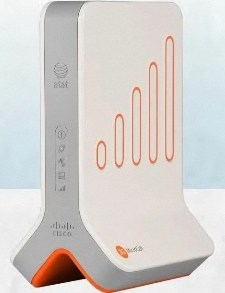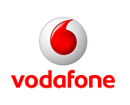[Looking for more great examples of industry-backed dollar-a-holler front groups opposing Net Neutrality? Just click here and set your scroll wheel on turbo because we’ve compiled some examples you won’t believe!]

Americans for Prosperity's claim that grandma will face a $300 broadband bill will only become reality if Internet providers get away with Internet Overcharging schemes that would triple the price you pay for broadband service.
Americans for Prosperity, the group that harassed residents of Salisbury, North Carolina last year with push polls and recorded phone messages opposing municipal broadband, is renewing its effort to sign up the tea party crowd to oppose Net Neutrality reforms.
Ostensibly representing those favoring “less government,” AFP is actually a corporate front group founded by oil billionaire David Koch but also backed by telecom interests. The group shills for large phone and cable companies to keep them deregulated, and opposes consumer reforms. The group’s spokesman on Net Neutrality is Phil Kerpen — a regular on Fox News — appearing on Glenn Beck’s program to nod in agreement to wild claims that Net Neutrality is Maoist.
Now the group has unveiled a new advertisement opposing Net Neutrality and is spending $1.4 million dollars in its first ad buy. The 30-second ad targets legislators with wild claims about Net Neutrality that don’t pass even the most rudimentary truth tests.
Comparing Net Neutrality with Washington-directed bailouts of banks and the auto industry, the group claims Washington wants to “spend billions to take over the Internet.” Apparently the Internet is available for purchase on eBay.
In reality, the only group with the deep pockets is this debate is America’s telecommunications companies, who are among the biggest spenders for lobbyists, astroturf campaigns that claim to represent consumer interests, and writing big campaign contribution checks to state and federal elected legislators.
Establishing Net Neutrality protections doesn’t cost billions. Fighting against establishing Net Neutrality might.
In fact, the biggest expense the Federal Communications Commission faces in its efforts to adopt Net Neutrality reforms will come from legal expenses brought about by continuous provider lawsuits.
[flv width=”480″ height=”380″]http://www.phillipdampier.com/video/Americans for Prosperity Dont Regulate the Internet Ad 5-2010.flv[/flv]
Americans for Prosperity’s anti-Net Neutrality advertisement claims Washington is spending “billions” to “take over the Internet.” (30 seconds)
An amateurish animated video accompanying the ad on AFP’s YouTube channel extends the lies into the ionosphere:
- The video claims the government is preparing to take over the Internet, which is false.
- It implies the majority of Americans oppose Net Neutrality, also false.
- The video suggests that businesses will be prohibited from purchasing faster broadband, because under Net Neutrality, everyone will share the exact same broadband speed, both of which are totally false.
- Grandma, who “only uses the Internet to check e-mail,” will be prohibited from buying cheaper access under Net Neutrality. More deception.
The video ends with a bleeped expletive. Real professional.
[flv width=”641″ height=”380″]http://www.phillipdampier.com/video/Americans for Prosperity Animated Anti Net Neutrality Video 5-2010.flv[/flv]
Americans for Prosperity’s animated anti-Net Neutrality video makes wild claims that don’t come close to being h0nest with the viewer. [Warning: Loud Video — Turn Down Volume Before Playing] (1 minute)
Let’s Get Real.
FACT: If anyone is trying to “take over the Internet,” it’s a handful of corporate providers who won’t agree to common sense regulations that guarantee they will not block or impede web traffic. If they have no intention of engaging in bad behavior, why spend millions of dollars to fight the regulations?
FACT: Americans favor Net Neutrality protections that guarantee net freedom and keep providers from further increasing your broadband bill by monetizing every aspect of the Internet.
FACT: Americans buy broadband based on speed tiers. Net Neutrality does nothing to change this model. Any business seeking faster service can continue to acquire it, if they can find a provider to sell it to them. What Net Neutrality prohibits are Internet Service Providers artificially slowing down your website traffic unless and until you agree to protection payments to take the speed throttles off.
FACT: Most providers sell “Lite” broadband service to those seeking cheaper access or who only need the Internet for basic web browsing or e-mail access. Some communities even offer basic Wi-Fi access to the Internet for free, and the Obama Administration is proposing to modify the Universal Service Fund to help economically disadvantaged Americans obtain basic web access at a more affordable price.
FACT: The only way a broadband bill is going to achieve the $300 price tag found in this video is if providers are permitted to run roughshod over their customers with Internet Overcharging schemes. Some earlier proposed broadband “pricing experiments” would effectively triple the price for broadband service Americans pay, but that has nothing to do with Washington. That can be laid directly at the feet of the same broadband providers who are writing enormous checks to astroturfers like Americans for Prosperity to hoodwink Americans into supporting things directly opposed to their best interests.
Don’t be Americans for Prosperity’s sucker.


 Subscribe
Subscribe




